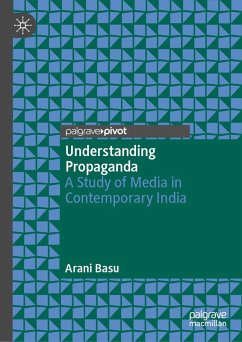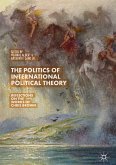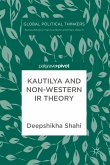Through a rigorous engagement with conceptual frameworks and grounded empirical analysis, the book reveals how Indian media systematically echoes and amplifies the tenets of Hindu nationalism, promotes anti-minority worldviews, and sustains a climate of Islamophobia. Each chapter draws on empirical illustrations emerging through primary data that demonstrate how key features of propaganda such as repetition, emotional manipulation, enemy construction, and manufactured consent are deeply woven into the fabric of polymedia in contemporary India ranging from television to social media.
This book is essential reading for scholars, journalists, students, and citizens concerned with democracy, media ethics, and the growing convergence between state power and information systems in the digital age.
Dieser Download kann aus rechtlichen Gründen nur mit Rechnungsadresse in A, B, BG, CY, CZ, D, DK, EW, E, FIN, F, GR, HR, H, IRL, I, LT, L, LR, M, NL, PL, P, R, S, SLO, SK ausgeliefert werden.









